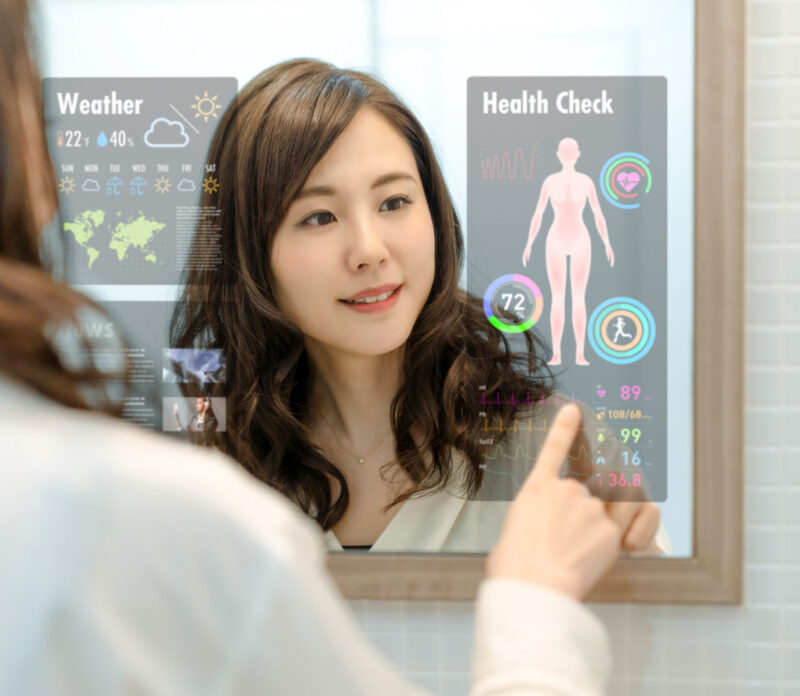
Health
Can Your Home Make You Live Longer?
Today’s houses aren’t just smart—they practically have medical degrees.
Ready to renovate your kitchen or bathroom? You probably have your interior designer on speed dial. But here’s another idea: You might want to consult your physician.
Paging Dr. Decor: Since the Covid pandemic, people are looking for their living space to be more than just a place to take refuge from germs. A number of technological innovations are revolutionizing the way that home-sweet-home can help people stay healthier.
The Global Wellness Institute reports that “wellness real estate”—real estate that incorporates health elements into its design, materials, and building—is growing quickly, as people want to bring more self-care into the spaces where they spend the majority of their time. How much more? Well, the current market is estimated at around $398 billion, and growing.
But wait, you already have a Japanese toilet that plays music and lovingly washes your private parts? Your shower mimics the feel of an Amazon rainforest? And your scale not only tells you your weight but also your percentage of body fat? That’s a great start. But the latest health tech innovations—some available now and some coming soon—go far beyond.
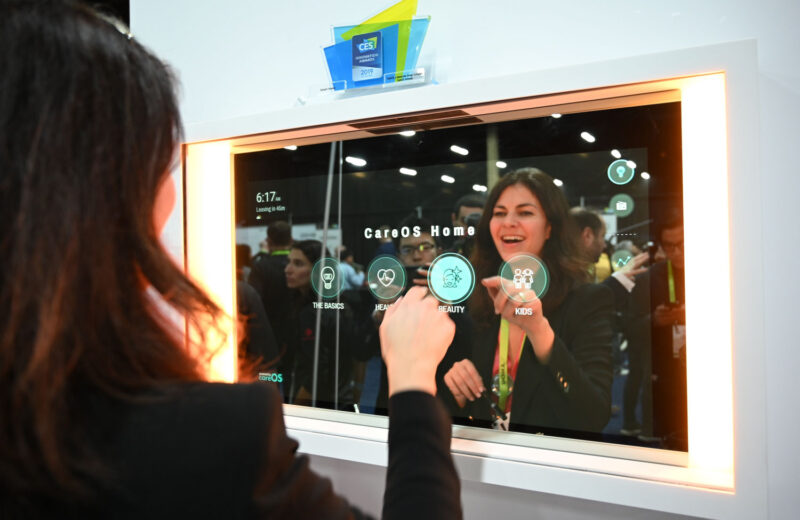
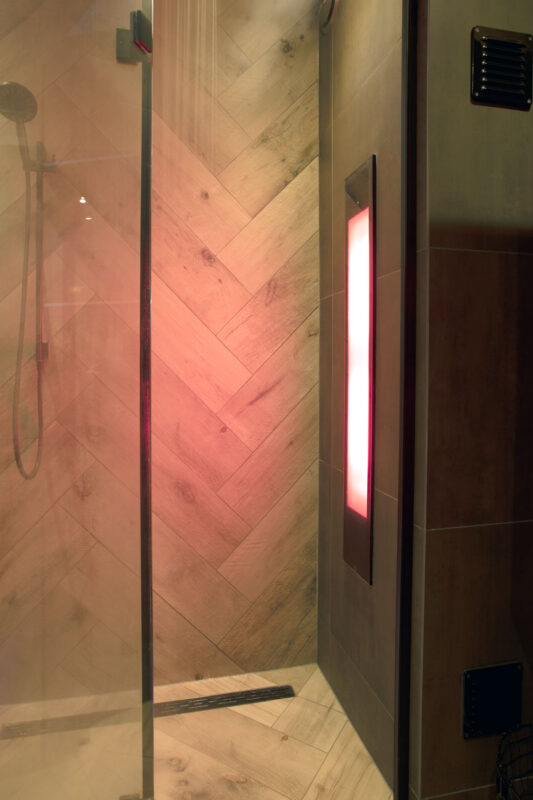
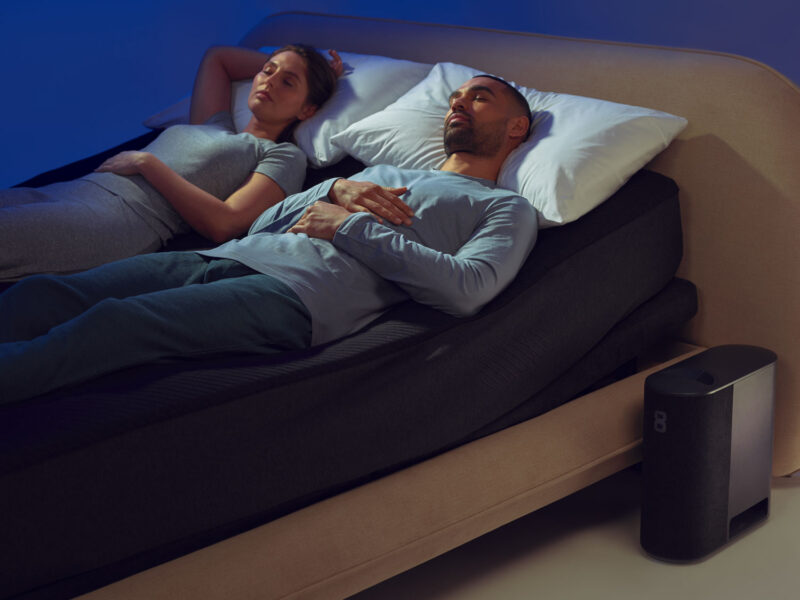
Consider BMind, an AI-powered bathroom mirror by Baracoda that boosts your mental health by identifying mood and helping to manage stress.
Baracoda will also be offering the Poseidon Mirror, which has the ability to check heart rate, respiration rate, and oxygen saturation. But that’s not what gives it its $3,000–$5,000 price tag. It can also keep track of your balance and posture, administer vision tests . . . and assess your mental health.
How? The company is a bit squirrely about its proprietary software, but it requires Bluetooth or iPhone hookups, and by using AI to evaluate voice and gestures, it can then recommend mindfulness techniques, or even “curb feelings of loneliness through an immersive experience using light, sound, and visuals,” according to its website. (Can it give me an AI Ryan Gosling standing next to me in the mirror, staring adoringly? Maybe that will be the next generation software. . .)
Health tech for the bathroom or home sauna may include infrared—which purportedly improves circulation, reduces blood pressure, relaxes muscles, and boosts the immune system. That’s a lot to ask of a light that is basically a form of heat, included in many spa treatments. But hey, it does feel good.
Do not confuse infrared with ultraviolet (UV) light, which is what old hotel bathrooms used to offer as an amenity. This is the kind of light that gives you sunburn and damages your skin. But UV light also kills bacteria and viruses. And for about $500, you can now buy a small UV device to sanitize areas in your home, like the bathroom or kitchen counter, or arguably the filthiest surface in your house—your cell phone.
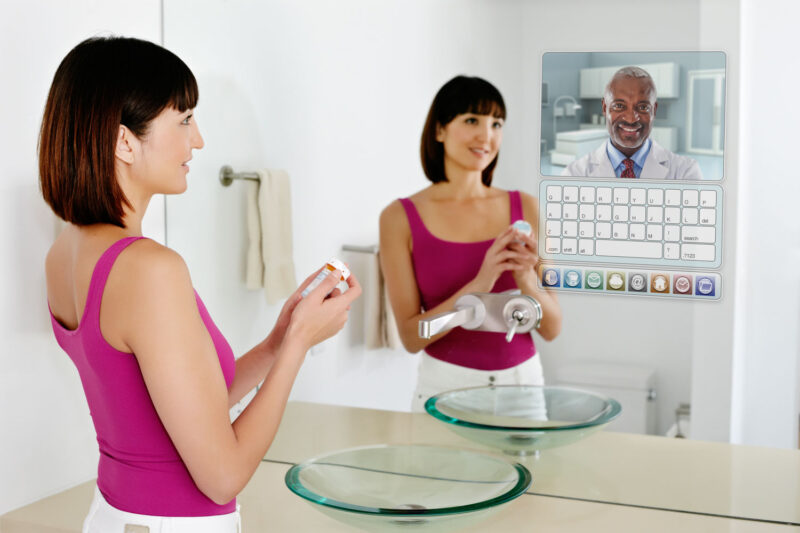
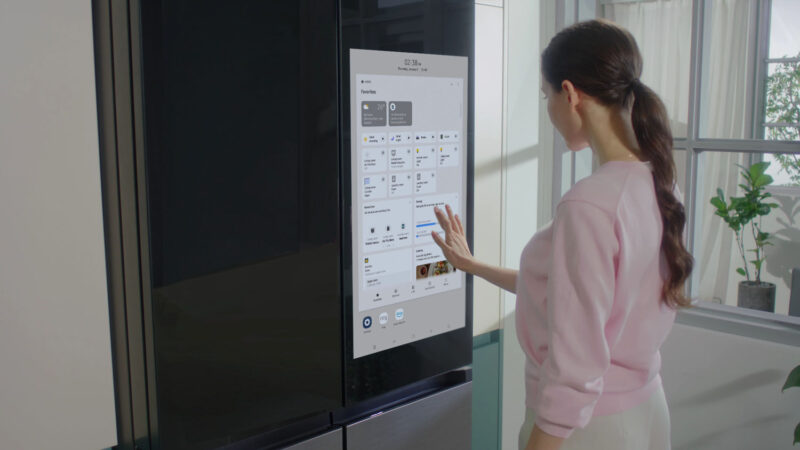
Worried about bacteria growing in your refrigerator? There are new “smart fridges” like the $3,500 Samsung Bespoke AI Family Hub that, in addition to doing things like letting you peer inside it from an app on your phone, will let you know if any of the food inside is expiring.
You might love your insanely comfortable Hästens mattress, but can it analyze your sleep, monitor your breath and movement, and respond to snoring? The TEMPUR-Pedic ERGO Power Base with Sleep Tracker can. The $2,300 unit (for king size) gives you a nightly sleep score and personalized sleep strategy to follow. The software gets smarter as it learns more about you and can offer even more personalized recommendations for better sleep.
Eight Sleep, another AI-powered smart sleep system that works with most mattresses, claims that users will reap as much as an extra hour of sleep every night with its help.
And this is just the beginning. Here’s what else you can look forward to in the near future:
- Floors with embedded sensors that can detect if someone falls. . . and then call for help if necessary.
- Toilets that analyze your bodily excretions and alert you to potential health problems.
- Smart thermostats that not only monitor temperature but also have air quality sensors so you can see if your indoor air is polluted. Data collected from these thermostats may even help doctors treat respiratory and other health conditions.
- Chairs and sofas with wireless sensors incorporated into the textiles, capable of monitoring fluid composition in different parts of the body to predict risk of injury. (Because, believe it or not, buildup of fluid in the liver, kidneys or stomach can affect balance.)
Will all of this brave new technology substitute for a visit to a doctor? Of course not. But these gadgets may let us know when it’s time to go to a doctor; and for some, that’s a big bonus. Home is where the heart is—and increasingly, where the heart monitor is too.
Hero photo by metamorworks/Getty images



